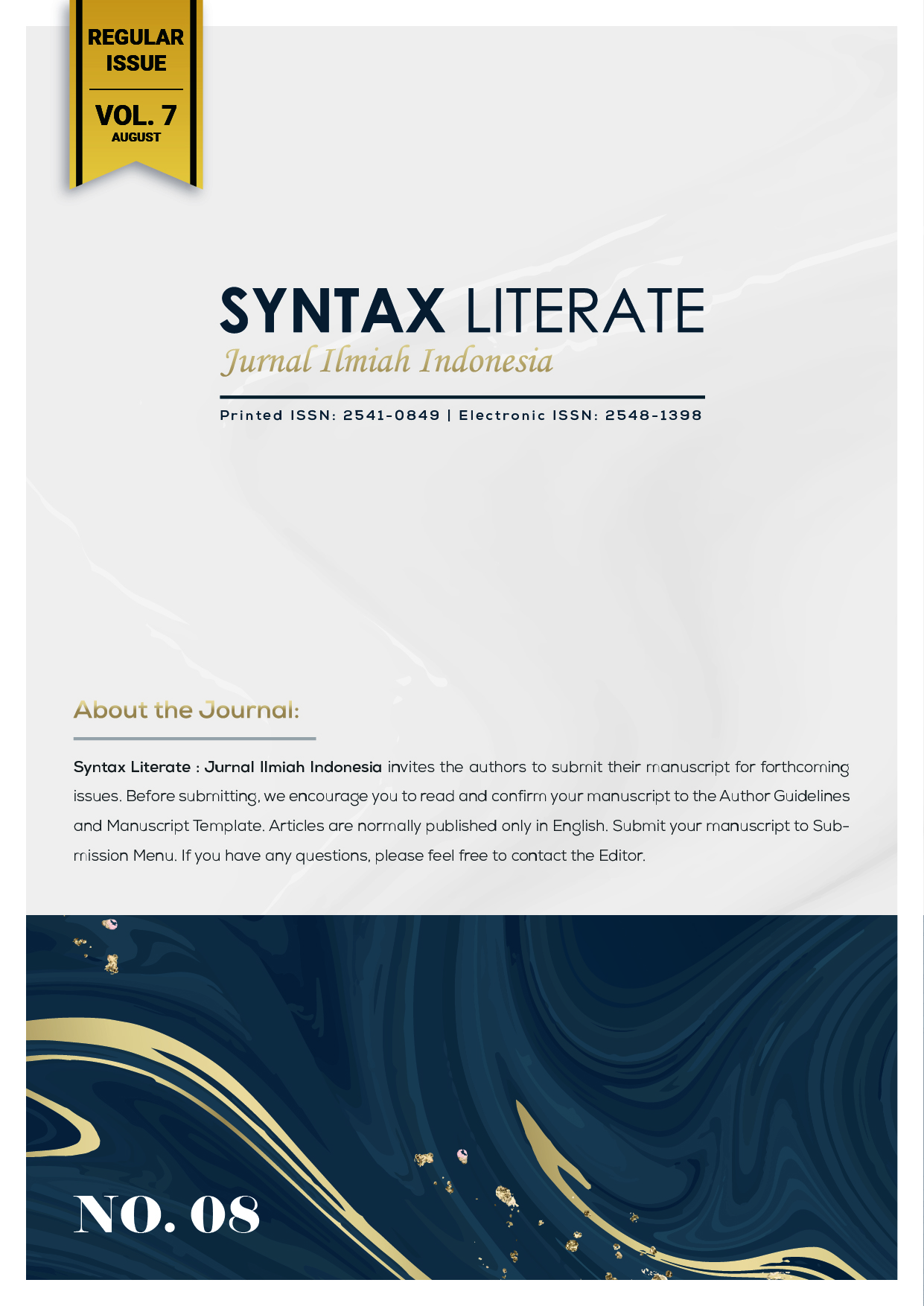Intentional Design of Marketplace Revitalization Program: Outcome Mapping For The Case of The Banjaran Market
Abstract
Marketplace revitalization is a solution from the government and related stakeholders to maintain the existence of the declining traditional marketplace. One of the Indonesian marketplaces that intervened with the revitalization program for this case study is Banjaran Market, in Bandung Regency, West Java which aims to improve infrastructure performance and the socio-economic development of its surrounding community. The complexity and expected behavioral changes in the marketplace revitalization program need to be simplified to be easily understood by the implementing team, beneficiaries, and donors via Outcome Mapping analytical method. This study started by collecting qualitative data, then focusing on Step Zero and the Intentional Design stage to establish the vision, identify boundary partners, state outcome challenges, and conceptualize strategies that influence boundary partners’ behavioral changes. The results show that the Banjaran Market merchant association is the boundary partner of the revitalization program, with the expected behavioral change indicated by ‘relationship’ in the form of openness, not hindering program implementation, which in turn builds the community and business management capacity, according to the regional government and medium-term development plans. This study is accustomed to be an evaluation of other marketplace revitalization programs in Indonesia, for inclusive and sustainable community engagement and development.
Downloads
References
Damsyah, A. R., & Abidin, A. Z. (2022). An Impact Review of Traditional Market Revitalization for Producers and Consumers: A Case Study of Surakarta Legi Market. In Proceedings of International Conference on Economics Business and Government Challenges (pp. 79–86).
Deprez, S., Nirarita, E., & Shatifan, N. (2010). Outcome Mapping: Jejak Perubahan Menuju Keberhasilan. In S. D. Arwida, N. M. B. Utami, & Widjoraras (Eds.), Denpasar: VECO Indonesia.
Earl, S., Carden, F., & Smutylo, T. (2001). Outcome Mapping: Building Learning and Reflection into Development Programs. Ottawa: International Development Research Centre.
Humas Pemkab Diskominfo. (2023). Pemkab Bandung Akan Revitalisasi Pasar Banjaran. Retrieved January 18, 2023, from https://bandungkab.go.id/arsip/pemkab-bandung-akan-revitalisasi-pasar-banjaran
Kibel, B. M. (1999). Outcome Pathway Analyses of Two Action Research Projects. IDRC Final Report – Pacific Institute for Research and Evaluation. Retrieved January 18, 2023, from https://idl-bnc-idrc.dspacedirect.org/handle/10625/54979
Lee, S. (2017). A Study on Traditional Market Decline and Revitalization in Korea - Improving the Iksan Jungang Traditional Market. Journal of Asian Architecture and Building Engineering, 16(3), 455–62. doi: 10.3130/jaabe.16.455
Mısırlısoy, D. (2021). Towards Sustainable Adaptive Reuse of Traditional Marketplaces. The Historic Environment: Policy & Practice, 12(2), 186–202. doi: 10.1080/17567505.2020.1784671
Park, C. -H., & Koo, J. -H. (2014). An Analysis of the Influential Relationship between Cultural Promotion Activities and Social Capital in the Traditional Market: A Comparative View with Routine Merchant Activities. Journal of Asian Architecture and Building Engineering, 13(1), 71–78. doi: 10.3130/jaabe.13.71
Purwanti, Y. (2017). The Revitalization of Traditional Market in the Border Area Between Indonesia-Malaysia. In Proceedings of the 2nd of International Seminar on Reinforcement of IMT-GT for Strengthening of Border Region (pp. 74–83). Bangkok.
Putra, R. D. D., & Rudito, B. (2015). Planning Community Development Program of Limbangan Traditional Market Revitalization with Social Mapping. Procedia - Social and Behavioral Sciences, 169, 143–50. doi: 10.1016/j.sbspro.2015.01.296
Rahadi, R. A., Prabowo, F. S. A., & Hapsariniaty, A. W. (2015). Synthesis of Traditional Marketplace Studies in Indonesia. International Academic Research Journal of Business and Technology, 1(2), 8–15.
Research to Action (R2A). (2012). Outcome Mapping: A Basic Introduction.
Rizal, J. J., Wilson, W., Mala, L. I., Yanti, M., & Lumanauw, M. F. (2013). Menguak Pasar Tradisional Indonesia (1st ed.). Jakarta: Direktorat Jenderal Kebudayaan.
Roduner, D., & Schläppi, W. (2008). Logical Framework Approach and Outcome Mapping: A Constructive Attempt of Synthesis. Rural Development News 2/2008. Retrieved January 18, 2023, from https://focusintl.com/data/documents/RBM083-2_Logical_Framework_Approach_and_Outcome_Mapping.pdf
Schappo, P., & van Melik, R. (2017). Meeting on the Marketplace: On the Integrative Potential of The Hague Market. Journal of Urbanism: International Research on Placemaking and Urban Sustainability, 10(3), 318–32. doi: 10.1080/17549175.2016.1223741
Sentanu, I. G., Wijayanto, A., Firmansyah, F., Mahadiansar, M., & Zeho, F. (2021). Local Government Strategy in Fostering Traditional Market Competitiveness through Revitalization (A Study at Pemalang Traditional Market). In Proceedings of the 1st Tidar International Conference on Advancing Local Wisdom Towards Global Megatrends, TIC 2020, 21-22 October 2020, Magelang, Jawa Tengah, Indonesia. EAI.
Serrat, O. D. (2008). Outcome Mapping. Asian Development Bank – Knowledge Solutions 17. Retrieved January 18, 2023, from https://www.adb.org/publications/outcome-mapping
Smutylo, T. (2005). Outcome Mapping: A Method for Tracking Behavioral Changes in Development Programs. AgEcon Search – Institutional Learning and Change (ILAC) Brief 7. Retrieved January 18, 2023, from https://cgspace.cgiar.org/handle/10568/70174
Suryanto, S., Hermanto, B., & Dai, R. M. (2018). Traditional Market Issues. In Proceedings of the International Conference on Business, Economic, Social Science and Humanities (ICOBEST 2018). Paris, France: Atlantis Press.
Tsasis, P., Evans, F., & Jones. (2013). Outcome Mapping for Health System Integration. Journal of Multidisciplinary Healthcare, 99. doi: 10.2147/JMDH.S41575
Ujianti, N. M. P., & Dewi, A. A. S. L. (2021). Traditional Market Revitalization in the Persfective of Cultural Tourism Development in Denpasar City. In Proceedings of the 2nd International Conference on Business Law and Local Wisdom in Tourism (ICBLT 2021). Atlantis Press.
Yulianti, N. M. D. R., & Kintani, A. C. S. (2020). Revitalization: New Opportunities or New Problems? The Perspective of Trader. International Journal of Business, Economics & Management, 3(1), 177–85. doi: 10.31295/ijbem.v3n1.185
Zandieh, M., & Seifpour, Z. (2020). Preserving Traditional Marketplaces as Places of Intangible Heritage for Tourism. Journal of Heritage Tourism, 15(1), 111–21. doi: 10.1080/1743873X.2019.1604714
Copyright (c) 2023 Chairil Zidane, Allis Nurdini

This work is licensed under a Creative Commons Attribution-ShareAlike 4.0 International License.











